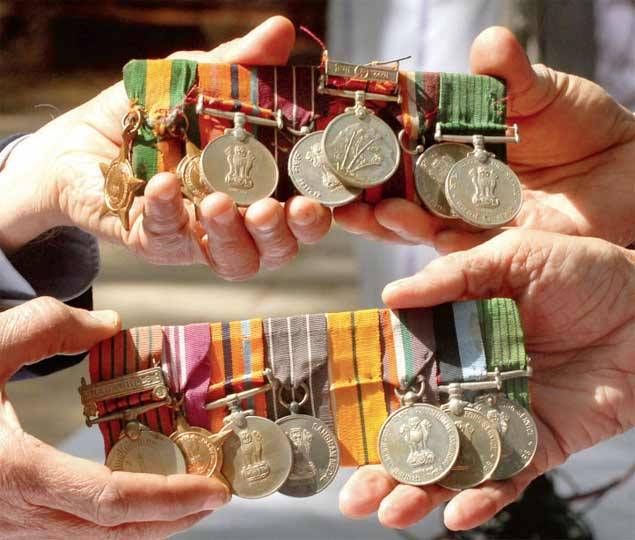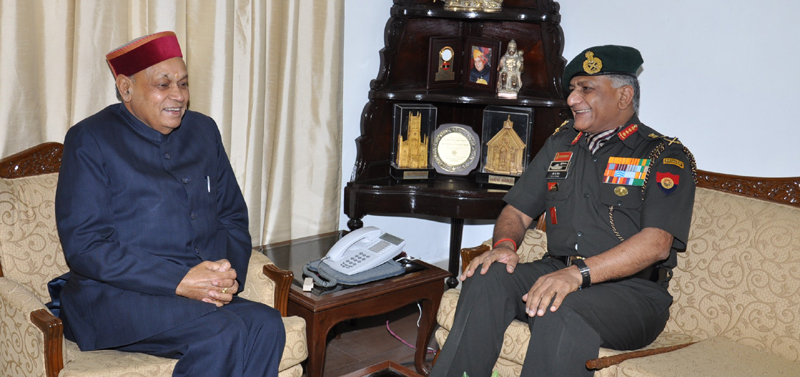The police action against ex-servicemen at Jantar Mantar in August, 2015 should have been sufficient to forewarn the government that the grievances related to ex-servicemen could snowball into a major issue if not addressed and settled on priority. Without a doubt the issue had to explode sooner or later and that is exactly what has happened with the unfortunate suicide of an Army veteran a few days ago. Indian ex-servicemen have shown exemplary patience and discipline for over forty years to have the legitimate demand of One Rank One Pension (OROP) addressed in a judicious manner. However veterans have been deliberately ignored and taken for granted by the authorities who have shown an utter disregard for them in more ways than one since 1973. In fact the seeds of such disdain on part of political and civilian leadership were sown during the time of Pandit Jawaharlal Nehru and his Defence Minister Mr VK Krishna Menon in the early years after India became independent. These have been very well documented in the biography of General K S Thimayya titled ‘An Amazing Life’ by Brigadier Chandra B Khanduri. Successive governments have only carried on in the same vein without realising the gravity of the issue in hand. Unfortunately top leadership of the Military too has been found wanting in this regard for the last few decades. It may sound harsh, but the fact is that they either lacked or did not show enough leadership, conviction, commitment and courage to force the government to take note.
Today a soldier is no more resigned to his fate of an early retirement while he is still in his forties since the environment has changed drastically after 1990. The military today has soldiers from all parts of the country representing different strata of the society unlike the early years where most soldiers were from the rural background. The nation has come a long way in terms of development with consumerism taking centre stage in the life of an average Indian. In light of this it is neither possible nor acceptable for most soldiers to sit back and try to meet their personal and family needs from the meagre pension that they receive. Today the demands from the family are far greater than in the past as also a greater awareness to ensure a brighter future for their children. In short, to put it in some harsh words, having committed the best and most productive years of his life in the service of the nation at the cost of ensuring a better future for his family, a soldier is convinced that the nation has to be fair to him once he retires and possibly make up for part of what he has lost. This is a serious deviation from the old thinking where a soldier resigned to his fate after retirement and accepted whatever the government gave him – or did not give him. For many just the respect and prestige they enjoyed in their immediate society was possibly a major contributor to their overall contentment after an active military life.
The change of state in the veteran’s attitude has been brought about by an utter lack of empathy and concern shown by the government over the years as also a continual erosion of his exalted place in the society. The government here includes political leadership and more importantly the civilian bureaucrats who have been instrumental in sidelining the interests of the military while actively promoting their own over the years. The political leadership has played in to the hands of the bureaucrats since it is no secret that they need them in their pursuit of power and wealth – by means fair or foul. This has resulted in the military being pushed down in matters related to status, power, pay and allowances over the last four decades while the bureaucracy’s graph in these matters has moved northwards at an alarming pace. The resultant chasm between the two is there for all to see, but political leadership has invariably adopted an ostrich like approach to the whole matter. Last but not the least, today post retirement employability is a major need and concern for almost all retirees but this is an area where government can only boast of a lot of lip service with hardly anything to match on the ground.
The year 2015 saw the beginning of a change in the manner in which ex-servicemen went about seeking redress for their problems from the government. The ex-servicemen organisations stopped being just paper tigers or mere spectators. Today they do not hesitate to agitate or show their anger and frustration in public. They are becoming increasingly media savvy and have no hesitation to exploit the same whenever they can. The suicide by Subedar Ram Krishan Grewal has to be viewed in this context and may possibly mark the end of patient and disciplined protests by Ex-servicemen. A soldier sees normal citizens getting their way on various issues by going on strikes, dharnas and agitations with full backing of politicians with vested interests. A soldier can clearly see that today’s politicians will not hesitate to exploit his valour, courage and patriotism to seek selfish political gains. In fact they will not even spare martyred soldiers who lay down their lives for the nation if they can get political mileage from their sacrifice. If BJP was accused of exploiting the ‘surgical strikes’ against Pakistan for political ends, the opposition parties have left no stone unturned to politicise the veteran’s suicide to the same end.
Is there any surprise that an ex-serviceman is getting more and more ‘civilianised’ because he has realised that maintaining his military value system will not get him anywhere in today’s environment where the only way forward is to force the hand of the authorities in your favour by pushing them against the wall. Who knows ex-servicemen may even be a potent political force to reckon with in the days to come if all their organisations can come together on a pan India basis. If this happens the day is not far when an active soldier too may be influenced by political thought or forced to make a political choice while still in uniform. That is a very disturbing thought but certainly not impossible if the current environment prevails.
Will the suicide of the veteran make any difference in the approach of the government? If the government acts, it will then be obvious that it was forced to do so. If it does not act, chances are that the agitation may surface again but with lesser degree of discipline and patience on part of ex-servicemen. Either way the government is cornered. A prudent approach for the government may be to listen to the real stake holders (ex-servicemen and current top military leadership) this time and take a long term view on the issues involved. It may be better for the political leadership to follow a top down approach in this matter and dictate what needs to be done instead of the bottoms up approach where its choices are limited to what is put up on file by the bureaucracy whose intentions have never been noble when it comes to matters related to military. It may be best to keep the military away from comparisons by totally delinking it from other government services. Without a doubt military service has nothing in common with any other civilian government service. All said and done a soldier, serving or retired, is still a very reasonable person who believes in keeping the nation above all his personal interests. He will neither ask for the moon or the stars nor will he demand something that he does not see as his legitimate due. All that is required is to safeguard the ‘izzat’ and ‘status’ of the uniform from predators that seem to be on the prowl to snatch the same from the soldier instead of working to build their own by giving the common man in the country a clean and responsive administration. Unfortunately in today’s democratic India while a soldier can successfully protect his nation from the nefarious designs of external predators, he is powerless when it comes to safeguarding his own uniform from scheming internal predators.
Saroj Chadha, an engineering professional, is a successful entrepreneur. Having retired from the Indian Army after having served for over 23 years, he has also been a consultant for leading Indian and Multinational electrical companies. He lives in New Delhi.




